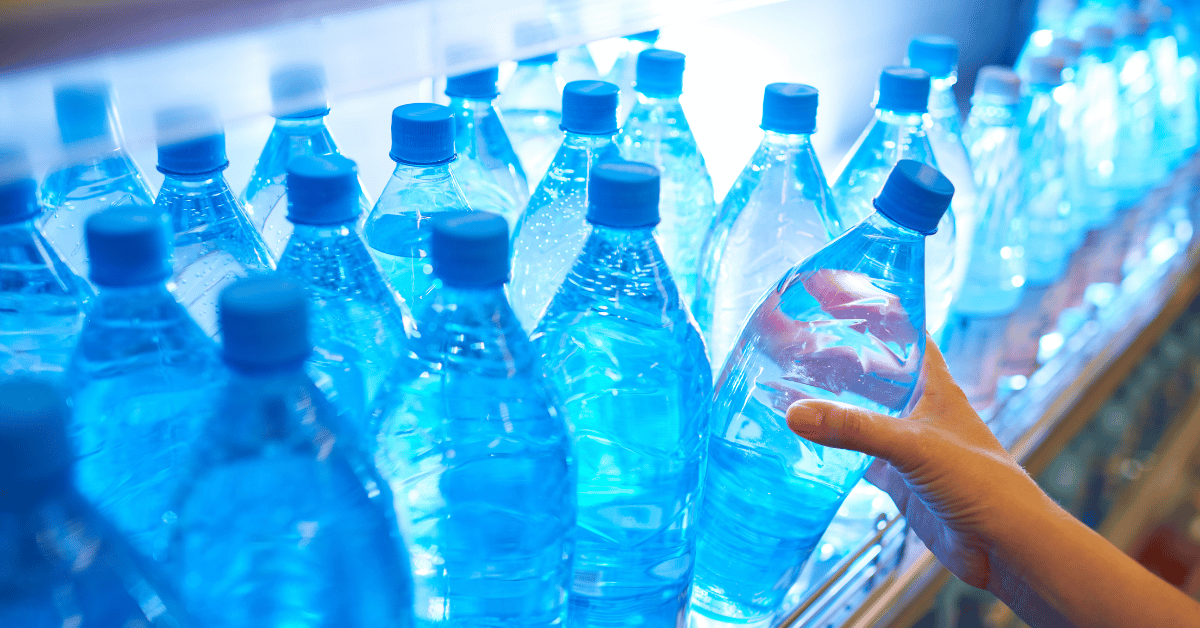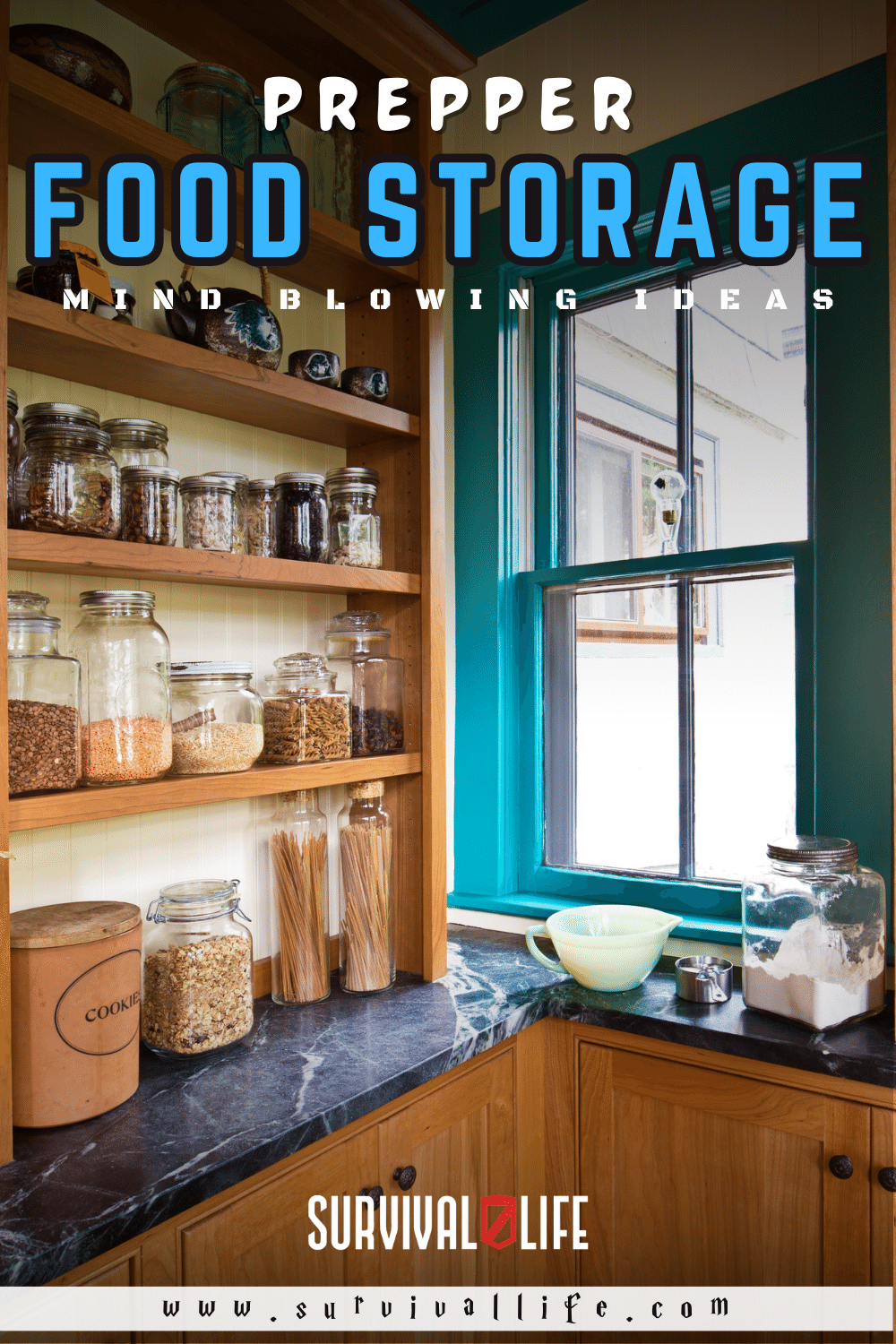Prepper Supplies
Prepper Food Storage: 10 Mind-Blowing Ideas You Must Known!

In today’s unpredictable world, being prepared for emergencies is paramount. One crucial aspect of emergency preparedness is food storage.
An ample supply of nutritious and long-lasting food can make all the difference during challenging times. In this article, we will explore ten mind-blowing ideas for prepper food storage that will amaze you and ensure your family’s well-being in any crisis.
Amazing Ideas for Prepper Food Storage
Here are the best prepper food storage mind-blowing ideas below.
Plan for Long-Term Sustainability
Concerning prepper food storage, it’s crucial to focus on long-term sustainability. Opt for food items that have a long shelf life and can provide essential nutrients.

Dried beans, rice, canned goods, and dehydrated fruits and vegetables are excellent choices.
These items can be stored for extended periods and offer a variety of essential vitamins and minerals.
Consider investing in Mylar bags or food-grade buckets with oxygen absorbers to extend the shelf life further.
Invest in Freeze-Dried Foods
Freeze-dried foods are a game-changer for preppers. They retain their flavor, texture, and nutritional value while having a long shelf life. By removing moisture from the food, freeze-drying preserves it for years.
Whether it’s freeze-dried meat, vegetables, or even complete meals, these items are lightweight, easy to prepare, and perfect for emergencies. Look for reputable freeze-dried food brands that offer a wide range of options to suit your family’s preferences.
Consider MREs (Meals Ready to Eat)
MREs, or Meals Ready to Eat, are an excellent addition to your prepper food storage. Initially developed for military use, MREs have gained popularity among preppers for their convenience, long shelf life, and complete nutritional content. Here’s why you should consider including MREs in your emergency food supply:
Complete Meals in a Compact Package
MREs are pre-packaged meals that contain everything you need for a complete meal. Each MRE typically includes an entrée, side dishes, snacks, desserts, and condiments.
It means you won’t have to worry about sourcing different foMREs are pre-packaged meals that contain everything you need for a complete meal.
Each MRE typically includes an entrée, side dishes, snacks, desserts, and condiments. It means you won’t have to worry about sourcing different food items, preparing complex meals during emergencies, or preparing complex meals during emergencies.
No Cooking or Refrigeration Required
One of the most significant advantages of MREs is their simplicity. They are designed to be consumed without the need for cooking or refrigeration.
MREs come with their heating elements, such as flameless ration heaters, which activate with the addition of water. It allows you to enjoy a hot meal even when traditional cooking methods are not feasible.
Long Shelf Life
MREs have a remarkably long shelf life, making them an ideal choice for emergency food storage. They are specially formulated and packaged to withstand harsh conditions and remain safe for consumption over an extended period.
Most MREs have a shelf life of up to 5 years, depending on the manufacturer and storage conditions.
Don’t Forget About Water Storage
When preparing for emergencies, it’s essential not to overlook the importance of water storage. While food is crucial for survival, access to clean drinking water is equally vital.
In times of crisis, water sources may become contaminated or unavailable, making it necessary to have a sufficient supply of stored water.
To ensure you have an adequate water storage plan, consider the following:
Determine Water Needs
Calculate how much water your household will need for drinking, cooking, and sanitation. The general recommendation is to store at least one gallon of water per person per day. Remember to account for any pets or additional family members.
Choose Suitable Containers
Select BPA-free containers specifically designed for water storage. Opt for sturdy, food-grade plastic containers, glass bottles, or water storage barrels. Ensure the containers are clean, sanitized, and have airtight lids to prevent contamination.
Before storing water, ensure it is clean and free of any impurities. If using tap water, treat it with water purification tablets or bleach to eliminate harmful microorganisms.

Follow the instructions on the purification tablets or use 8 drops of unscented liquid bleach per gallon of water. Stir the water and let it stand for 30 minutes before storing.
Embrace Canning and Preserving
Canning and preserving food allows you to extend its shelf life and provides a sense of self-reliance. Invest in canning supplies and learn the art of keeping food through various methods like canning, pickling, and fermentation.
This way, you can stock up on seasonal fruits, vegetables, and homemade jams, ensuring a diverse and nutritious food supply.
Take the time to learn proper canning techniques and ensure you have the necessary equipment, including jars, lids, and a pressure canner if required.
Rotate and Track Expiration Dates
To maintain a well-organized and up-to-date food storage system, you must rotate your supplies regularly and keep track of expiration dates. Doing so ensures that your stored food remains fresh, viable, and safe for consumption when an emergency arises.
Follow these steps to effectively rotate and track the expiration dates of your food storage:
Establish a System
Create a system to organize your food storage. It can be as simple as using shelves or designated areas in your pantry or storage room. Designate separate sections for different types of food, such as canned goods, dry goods, and perishable items.
Adopt the “first in, first out” (FIFO) principle. When adding new food items to your storage, place them behind existing ones.
This way, the older items are positioned at the front and will be used first, ensuring nothing goes to waste. This practice helps you avoid keeping food past its expiration date.
Label and Date Items
Label each food item with its name and the date of purchase or expiration. Use waterproof markers or labels to prevent smudging or fading. Marking your items allows for easy identification and helps you track when each article should be used or replaced.
Regularly Inspect and Rotate
Regularly inspect your food storage to check for any expired or damaged items. Set a schedule for every three months to conduct a thorough inspection. Remove any expired or damaged items and replace them with fresh supplies.
Use Soon-to-Expire Items
Prioritize using food items that are approaching their expiration date. Incorporate them into your meals and recipes to prevent wastage. Consider planning your meals around these items, ensuring they are consumed before expiration.
Build a Garden and Learn to Preserve Homegrown Produce
Growing your food provides fresh produce and contributes to your self-sufficiency as a prepper. Create a garden and grow fruits, vegetables, and herbs that thrive in your region.
By learning proper preservation techniques such as freezing, dehydrating, and canning, you can enjoy your homegrown produce throughout the year, adding variety and nutrition to your emergency food supply.
Consider heirloom seeds that allow you to save seeds for future planting and maintain a sustainable food source.
Stock Nutrient-Dense Superfoods
In times of crisis, it’s essential to have foods that provide maximum nutrition with minimal resources. Consider stocking on nutrient-dense superfoods like chia seeds, quinoa, nuts, and dried fruits.
These foods are rich in vitamins, minerals, and healthy fats, ensuring your body receives the nourishment it needs even in challenging circumstances.
Additionally, they are compact and lightweight, making them ideal for a well-rounded prepper food storage plan.
Include Comfort Foods for Psychological Support
While the nutritional aspect of prepper food storage is crucial, it’s equally important to consider psychological well-being during emergencies.
Including comfort foods like chocolate, coffee, or other treats can provide a sense of normalcy and boost morale.
These small indulgences can go a long way in maintaining a positive mindset during challenging times. Remember to store these items in a way that preserves their freshness and flavor.

Educate Yourself and Stay Informed
Lastly, continuously educate yourself on the latest techniques, innovations, and resources to enhance your prepper food storage. Stay informed about the best practices in food storage, emergency preparedness, and sustainable living.
By staying updated, you can adapt your food storage strategies to changing circumstances and make the most informed decisions for your family’s well-being.
Attend workshops, read books and articles, and connect with like-minded individuals to expand your knowledge and share experiences.
Preparing for emergencies involves several aspects, and food storage is critical to any preparedness plan.
By implementing the ten mind-blowing ideas for prepper food storage outlined in this article, you can ensure that you and your loved ones are well-fed and nourished during challenging times.
Remember, long-term sustainability, diverse options, and staying informed are crucial to building a robust and reliable food storage system.
Embrace these ideas, customize them to your needs, and gain peace of mind knowing that you are prepared for whatever comes your way.
Share your thoughts with us in the comments section below!
Up Next:
- 20 Best Prepper Websites You Need to Follow
- Prepper Supply List:13 Essential Items Everyone’s Needs
- 15 Advanced Prepper Supplies You Need to Survive Any Disaster
Follow us on Facebook, Instagram, Twitter, and Pinterest!
Disclaimer: All content on this site is for informational purposes only. Please read our full disclaimer here.
-

 Do It Yourself7 months ago
Do It Yourself7 months agoParacord Projects | 36 Cool Paracord Ideas For Your Paracord Survival Projects
-

 Do It Yourself9 months ago
Do It Yourself9 months agoHow To Make Paracord Survival Bracelets | DIY Survival Prepping
-

 Do It Yourself9 months ago
Do It Yourself9 months ago21 Home Remedies For Toothache Pain Relief
-

 Do It Yourself10 months ago
Do It Yourself10 months agoSurvival DIY: How To Melt Aluminum Cans For Casting
-

 Exports8 months ago
Exports8 months agoAre Switchblades Legal? Knife Laws By State

